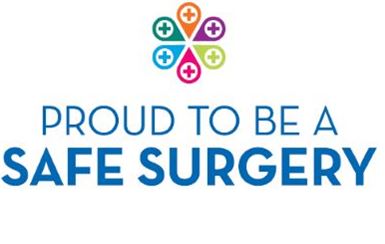What is flu?
Flu is a highly infectious disease. The symptoms, that come on very quickly, include fever, chills, headaches, aches and pains in the joints and muscles, and extreme tiredness. For most healthy people, a bad bout of flu is worse than a heavy cold usually requiring someone to spend a few days in bed. However, serious infections, especially in those with underlying health conditions, although less common, can lead to hospitalisation, permanent disability and even death.
What causes flu?
Flu is caused by viruses that are spread from person to person. They infect the respiratory system, where they can lead to pneumonia and other complications. The viruses are constantly changing and this is one of the main reasons why people should be vaccinated annually.
How is flu spread?
Flu is spread by coughs and sneezes that propel infected droplets of saliva or nasal secretions into the air which are then breathed in by others. The disease is also spread by people touching surfaces that the droplets have landed on and then touching their mouth, nose or eyes. This is why frequent hand washing or using an antiseptic hand rub is so important during the winter flu season.
How can I avoid catching flu?
It’s quite hard to avoid because people may be able to pass the virus on to others a day or so before symptoms start to show (as well as up to seven days after), so they won’t know if they are spreading the virus or not. So it’s very hard to avoid contact with people infected with the flu virus. And, of course, members of your family can always bring it into the home.
You can also wash your hands regularly but this won’t stop you catching the disease by breathing in the infected droplets in the air. The best way to help avoid getting flu is by having the vaccination.
Why is flu more serious for me if I am an older person?
The risk of serious illness from flu and consequent hospitalisation and death is higher among those aged 65 years and older as they are more likely to have an underlying health problem and the immune system does not work as well. The best way for people at risk from flu to protect themselves is to get the flu vaccine.
Why do underlying health conditions or pregnancy make it more serious for someone who gets flu?
You are at particular risk of severe illness if you get flu and have an underlying health condition, or are pregnant. This means that you are more likely to be admitted to hospital or on rare occasions be admitted to intensive care and even potentially die.
Will I be completely protected by the vaccination?
By having the vaccination you will be significantly reducing your risk of getting flu but no vaccine offers 100% protection.
Will I get any side effects?
There are some fairly common but mild side effects. Some people get a slight temperature and aching muscles for a couple of days afterwards, and your arm may feel a bit sore where you were injected. Any other reactions are very rare. Serious side effects in children are uncommon but many develop a runny or blocked nose, headache, general tiredness and some loss of appetite that lasts for a short period.
I had the flu vaccination last year. Do I need another one this year?
Yes, the flu vaccine for this winter provides protection against some different strains of flu from last year’s. For this reason we strongly recommend that even if you were vaccinated last year, you should be vaccinated again this year.
Where can I get more information?
Visit the flu pages on the NHS Choices website at: www.nhs.uk/conditions/vaccinations/pages/flu-influenza-vaccine.aspx
